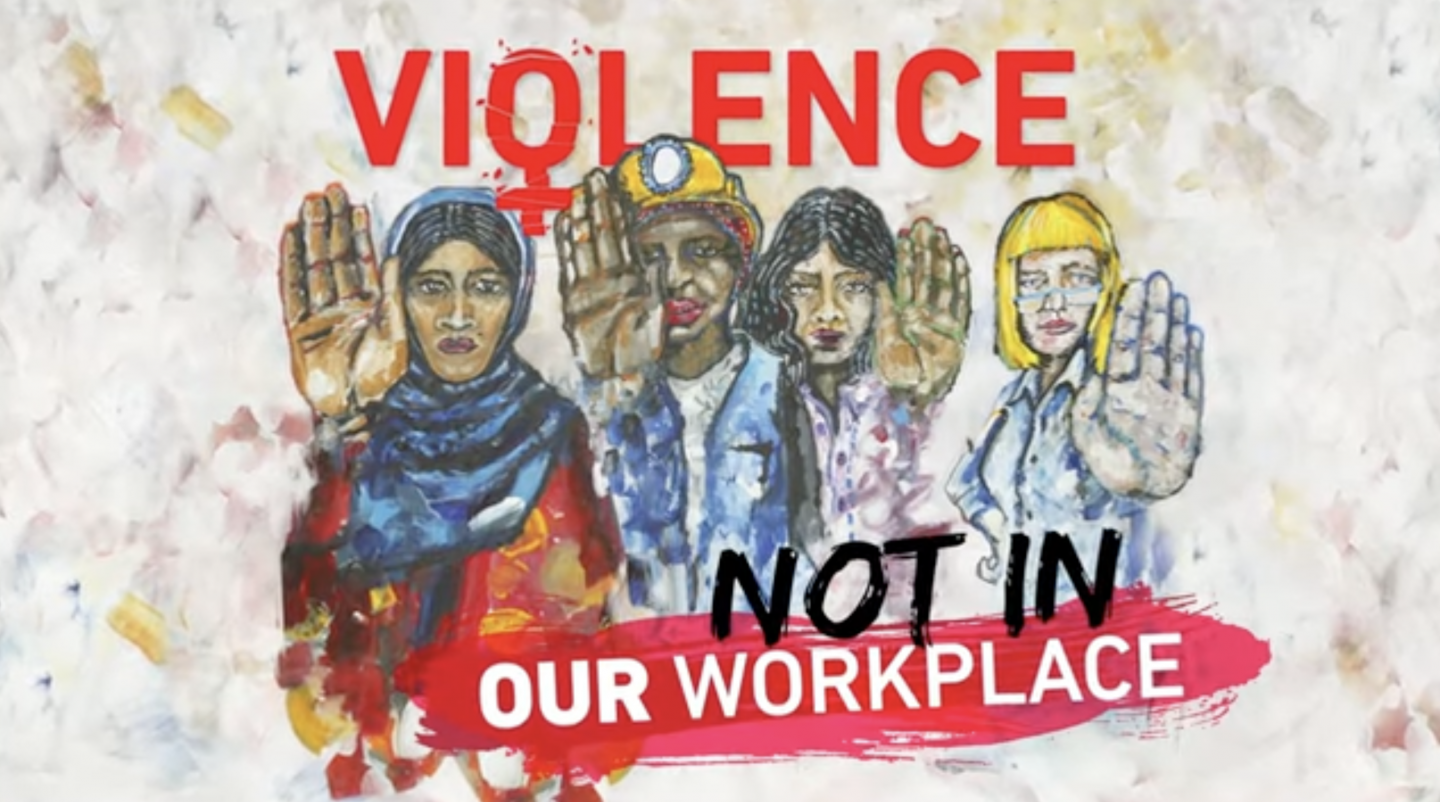13 September, 2024A recent report by the International Labour Organization (ILO), entitled: Violence and Harassment in the World of Work, shines a crucial spotlight on the escalating issue of workplace violence, with a particular focus on responses to rising levels of violence and harassment since the COVID-19 pandemic and how unions adapted and shifted their negotiations to include responses to the pandemic while continuing to implement their strategies relating to both the ratification and full implementation of the Convention (C190).
The report highlights how IndustriALL and its affiliates have been addressing violence and harassment in the workplace, particularly since the adoption of ILO Convention 190 (C190) in 2019. The landmark Convention, aimed at eradicating gender-based violence and harassment, (GBVH), has fueled a transformative wave in workplaces worldwide.
The report states that IndustriALL’s work is anchored in promoting the ratification and implementation of C190. It has mobilized affiliates across continents to integrate anti-gender-based violence and harassment policies into collective bargaining agreements (CBAs) and foster safe work environments for all workers.
For instance, IndustriALL has been instrumental in helping unions in Nigeria, Argentina, and the Philippines push their governments to ratify C190, while also supporting Indonesian unions in establishing zero-tolerance policies against workplace violence and sexual harassment. These efforts represent a growing global movement towards work environments rooted in dignity and safety.
IndustriALL has also made significant strides through its "Not in our Workplace, Not in our Union" pledge, which calls on its affiliates to actively combat violence against women and promote the elimination of GBVH. This pledge has become a catalyst for unions worldwide, pushing them to prioritize gender-based violence and harassment in their internal structures and external negotiations.
In addition, IndustriALL’s groundbreaking resolution adopted at its Third Congress calls for zero tolerance for sexism, misogyny, and GBVH, further embedding these principles into the fabric of global labour movements, the report notes. This resolution then led to the development and adoption of the new IndustriALL policy on GBVH, Sexism and Misogyny.
The expanded International Accord for Health and Safety in the Garment and Textile Industry, signed by global unions and garment retailers, includes measures to prevent sexual harassment, creating safer environments for millions of workers. Additionally, the MoU signed between IndustriALL and Anglo American, a global mining company, marks a pivotal moment in addressing workplace safety and gender-based violence in the mining sector.
IndustriALL's focus extends to comprehensive training programmes, equipping union leaders with the tools to address GBVH. Its global training initiative targets sectors like mining, garments, and electronics, fostering awareness and negotiating better workplace policies.
“IndustriALL’s collective efforts, alongside its affiliates, have set a strong precedent for combating violence and harassment in the workplace, including GBVH. The organization’s commitment to ratifying C190 and embedding its principles in global labour practices is a powerful testament to the role unions play in creating workplaces free from any forms of violence and harassment for all. Through social dialogue, strategic partnerships, and unwavering advocacy, IndustriALL is transforming the world of work for generations to come,”
says Armelle Seby IndustriALL gender director.
“The report highlights the crucial role that unions play in preventing violence and harassment and in advocating for the ratification and implementation of ILO document C190. We collected over 200 examples of union initiatives, strategies, initiatives and negotiations at national, regional and global levels aimed at preventing violence and harassment, including gender-responsive approaches in collective bargaining, in occupational safety and health, and through workplace policies that workers trust. It is impressive to see such union commitment and activism at so many different levels,”
says Jane Pillinger gender expert and author of report.
Photo: Shutterstock
